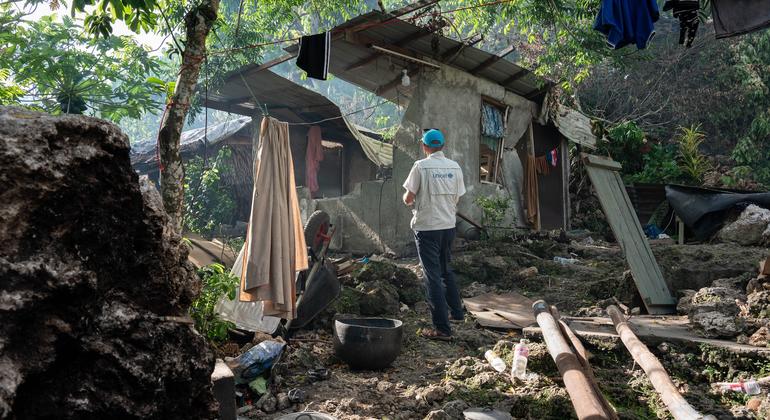A state of emergency remains in effect across the island nation of Vanuatu, following a series of devastating earthquakes that have rocked the region. The most recent quake, which struck on Tuesday, has left over 80,000 people affected and nearly 1,700 individuals temporarily displaced. The impact of the earthquake has been severe, with many communities facing critical needs for clean water, food, and healthcare.
The situation in Vanuatu is dire, with concerns growing about the ability of the country to respond effectively to the crisis. A dusk-to-dawn curfew was imposed in parts of the capital, Port Vila, and access roads to the seaport have been blocked. The reopening of Port Vila airport to commercial flights remains uncertain, further complicating efforts to provide relief to those in need.
Humanitarian needs in Vanuatu are mounting, with thousands of people requiring urgent assistance. Eleven evacuation centers are currently housing over 1,200 individuals, while others have sought refuge with host households. Access to clean water, food, and healthcare are top priorities, as communities are at risk of waterborne diseases and other health concerns.
The Vanuatu Central Hospital (VCH) is facing severe strain, with essential medical supplies in short supply. The hospital requires coordinated surge support to address critical gaps in healthcare services. The situation is further exacerbated by the closure of roads and limited access to affected areas, hindering the delivery of much-needed aid to those in need.
In response to the escalating crisis, a humanitarian flight coordinated by the UN World Food Programme (WFP) landed in Port Vila on Saturday. The flight delivered surge teams from UN agencies, humanitarian partners, and relief supplies to support the response effort. Agencies such as the World Health Organization (WHO), the UN Children’s Fund (UNICEF), and the UN Population Fund (UNFPA) are working alongside national authorities to provide assistance to those affected by the earthquakes.
UNFPA has set up maternity tents at VCH to support pregnant women and new mothers, while UNICEF has established tents to manage patient overflow and deployed child protection teams to assist families and healthcare workers. The delivery of bladder water tanks to VCH by UNICEF ensures continued access to clean water for patients and staff. WFP has deployed emergency telecommunications specialists to restore communication networks disrupted by the earthquakes, crucial for coordinating relief efforts.
The UN Satellite Centre (UNOSAT) is conducting satellite-based damage assessments to guide resource allocation and prioritize affected areas. Médecins Sans Frontières (MSF) and other humanitarian partners are providing on-the-ground assistance alongside national response teams to reach those in need. The timely response of these organizations is crucial to ensuring that affected families receive the assistance they require.
Alpha Bah, Director for WFP Pacific Multi-Country Office, based in Fiji, emphasized the importance of a coordinated and timely response to the crisis in Vanuatu. He expressed sorrow for the loss of lives and destruction caused by the earthquakes and highlighted the dedication of WFP to supporting national institutions and bolstering Vanuatu’s response efforts. The collaboration between international organizations, national authorities, and local partners is essential to addressing the needs of those affected by the earthquakes and ensuring that they receive the assistance they require.
As the situation in Vanuatu continues to unfold, the collective efforts of humanitarian organizations, government agencies, and local communities will be crucial in providing support to those affected by the earthquakes. The road to recovery will be long and challenging, but with continued cooperation and assistance, Vanuatu will be able to rebuild and recover from this devastating crisis.









